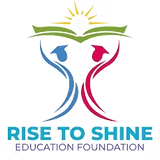A Glimpse into Precolonial Education in Africa
- Brian Owiny
- Jan 24, 2024
- 3 min read

Education has come a long way, not just in terms of what we are learning but how we learn too. Before the world became a village, education was, and still is to some extent, contained to the context of the society. It was tasked with passing down the values, culture, and beliefs. The expansion of boundaries has since led us to learn about other people’s cultures and beliefs, and even adopt some of them, improving our interactions and in some cases, leading to dissolution of certain practices, either because of the harm they do, or because of assimilation.
The education system in precolonial Africa wasn’t so different from society to another. While
customized to the individual society, there were many similarities within the African society such as worship of a deity, healing and medicine, storytelling, dance and music, all of which were taught to the next generation. The education then, was more practical than theoretical, as the students had to be hands-on to learn, participating in the rituals and the day-to-day activities such as farming, cooking, harvesting.
Education was relevant to the society and majorly emphasized the moral, spiritual, and social values of that society, as well as practical skills needed for everyday survival.
The education relied heavily on memory with the older members of the community relaying information, and some of it changed from season to season with the needs of the society. All children of the society were entitled to learning, and the non-commercial nature of the education made that possible. No teacher was paid to teach. Gender played a major role in what was taught. However, the class divide would later separate the education into formal and informal, with children of wealthier societies getting access to formal education.
Even though Africa’s education was mostly oral and practical, there were ancient forms of
writings discovered, including the Hieroglyphs of Egypt, Ge’ez of Ethiopia, Meroitic of Nubia, and Coptic of Egypt among many others.
Education has since evolved into different subjects and platforms, making it easily accessible to a lot of people. With the internet, access to knowledge and learning materials is easier than it has ever been. YouTube, E-books, Podcasts, and websites and blogs dedicated to teaching and educating about every subject imaginable. From a privileged point, it is easy to assume that every individual has access to all these materials, and therefore gets good education.
However, this ease of access is not reflected in areas where access to education to formal
education is still difficult. The commercialization and formalization of education have left a lot of people in remote areas with no access to education due to a lack of resources. With advancements in technology and the shift of the world from formal to informal, most of the skills that were applicable in the traditional African society are now vestiges. We hunt, alright, but not literally with an arrow and a spear. These new forms of hunting require a certain type of education and exposure. With the larger population unaffected, we are likely to forget that we are leaving a lot more people behind. According to the African Library Project, more than 1 in 3 adults cannot read. 182 million adults are unable to read and write. 48 million youth (ages 15-24) are illiterate. 22% of primary-aged children are not in school. That makes 30 million primary-aged children who are not in school. More than 75% of all children (ages 5-9) don’t go to school. Sub-Saharan Africa holds the highest number of illiterate youth.
We do not, therefore, have the luxury to assume that our children are getting the education that they deserve, that the continent needs to equip its children with for their future, and for the future of the continent.
Africa’s pre-colonial education system was inclusive, and while it had its shortcomings, this is one thing we can learn and adopt. As a social community new to the idea of individualism, we can continue to collectively advocate for the education of all children, technical training or otherwise.
At RTSEF, we are committed to seeing as many children as possible, enrolled in schools. Our scholarship opportunities have given chances to children who would otherwise, have been left behind. Thank you for all your support, that has made this possible. Happy International Day of Education!




Comments